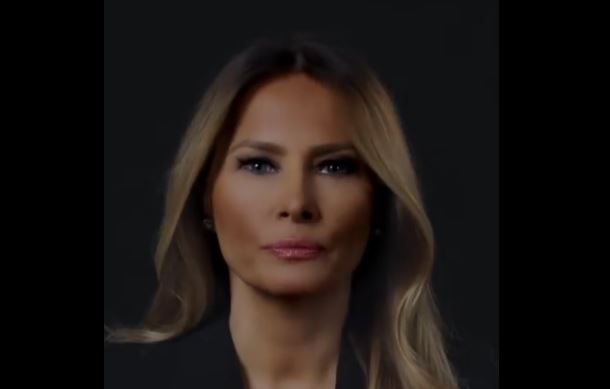In a recent interview with Fox News’ Maria Bartiromo, Melania Trump, the incoming First Lady, opened up about the significant persecution she has experienced since leaving the White House in 2021. Trump indicated that the hostility she faced started back in 2015 when her husband, Donald Trump, announced his run for the presidency, and it has persisted even after their departure from political office. She emphasized that these challenges were not simply personal hardships, but a reflection of a broader societal issue she perceives as “cancel culture” – a phenomenon where individuals or entities are ostracized or deprived of support due to their beliefs or associations.
Melania shared specific instances that illustrate the extent of her mistreatment. She revealed that a bank, not just a single branch but the entire institution, severed their relationship with her, informing her abruptly that they could no longer do business with her. This incident highlights the serious repercussions individuals may face in both their personal and professional dealings based purely on their political affiliations. Additionally, she disclosed that a major email service provider terminated its agreement with her without warning, further illustrating the isolation and ostracism she has encountered.
Another poignant example she discussed involved her attempts to donate to a scholarship program for foster children through an unspecified university. Initially, the university welcomed her financial assistance, but once the board of directors discovered her identity, they rescinded their acceptance, stating they could no longer proceed with the transaction. Trump lamented the impact such decisions have on marginalized communities, underscoring that it is ultimately the children who suffer when political biases interfere with altruism. She expressed her disappointment, emphasizing that her political beliefs should not obstruct the vital assistance that vulnerable groups desperately need.
When Bartiromo inquired if the persecution had lessened over time, Melania suggested that while some individuals have begun to express courage in advocacy and speaking out, the phenomenon of cancel culture continues unabated. She believes that the current trend still embodies a climate where people are fearful of expressing their support for certain individuals or ideologies. This ongoing culture of fear and conformity, according to Melania, stifles open dialogue and creates barriers not just for public figures but also for many ordinary individuals who may feel compelled to hide their beliefs for fear of social ostracization.
During the interview, Trump also took the opportunity to promote her recently released memoir titled “Melania,” which has quickly risen to become a No. 1 New York Times bestseller. She characterized the book as a deeply personal and reflective journey, indicating that it aims to present her side of the story against a backdrop of public speculation and scrutiny. In her promotion of the memoir, she conveyed a sense of responsibility to clarify misinformation about her life and experiences, particularly as someone who has often been misrepresented in the media.
Melania Trump’s insights during the interview reveal not only her personal struggles but also invite a broader discussion on the implications of cancel culture, drawing attention to the societal divisions it perpetuates. Her experiences, especially in the context of the current political climate, raise questions about the freedom of expression and the balance between political beliefs and social acceptance. Ultimately, her narrative serves as a powerful reminder of the personal costs that can arise from public life and the continued relevance of political identity in shaping social interactions.

